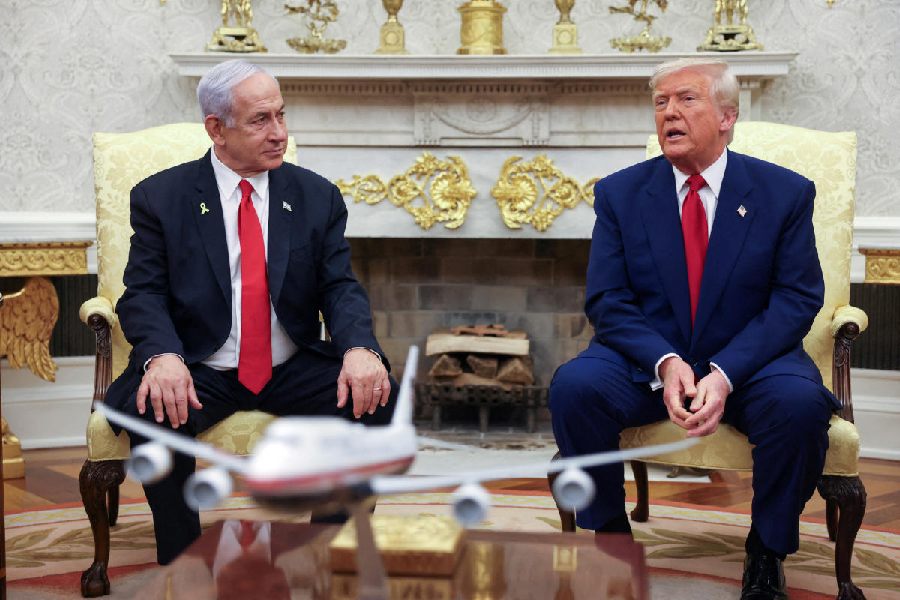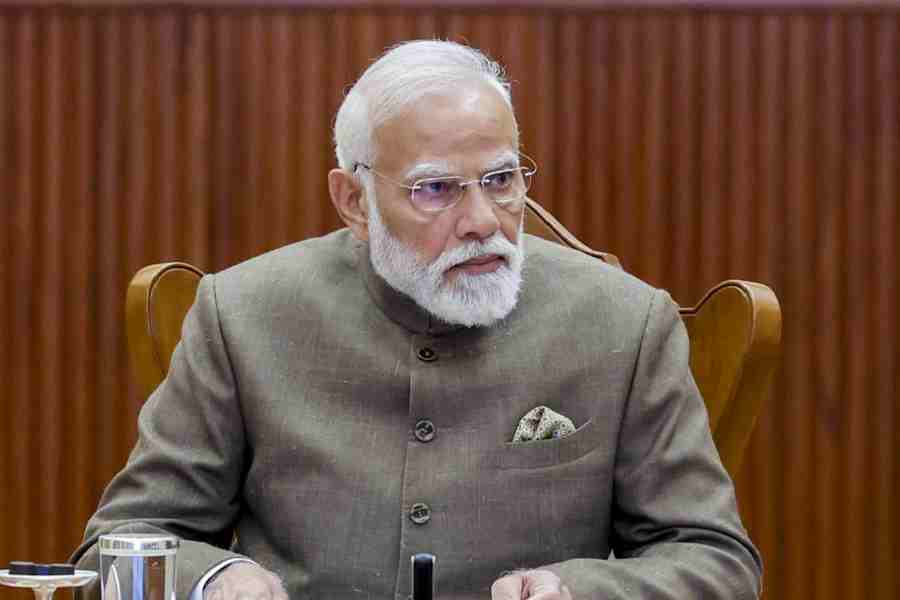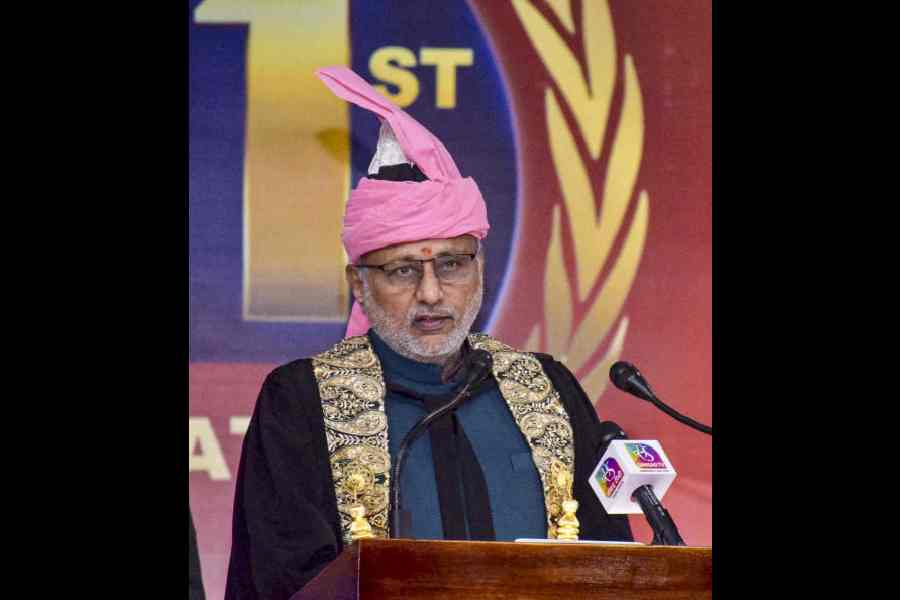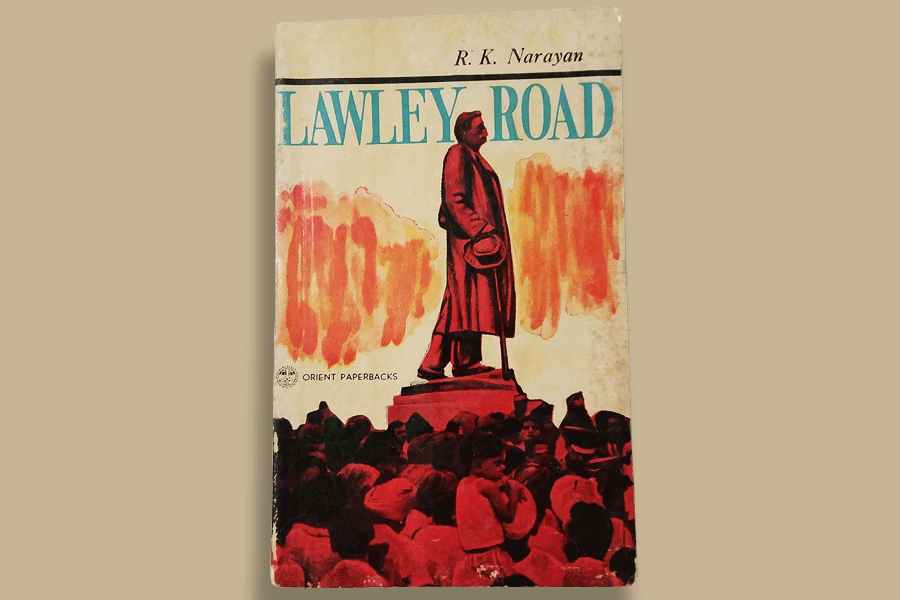When Israeli Prime Minister Benjamin Netanyahu met US President Donald Trump at the White House in February, the two men could not have been more in sync.
The President had designated Houthi militants in Yemen as a terrorist organisation. They both spoke of stopping Iran from acquiring a nuclear bomb. Trump even mused about expelling Palestinians from Gaza.
“You say things others refuse to say,” Netanyahu gushed in the Oval Office, with cameras running. “And then, after the jaws drop, people scratch their heads. And they say, ‘You know, he’s right’.”
Two months later, in another White House visit, Netanyahu sat almost silently next to the President for more than half an hour as Trump expounded on topics having nothing to do with Israel.
That meeting, in April, underscored a growing divide between the two men, who are increasingly in disagreement on some of the most critical security issues facing Israel.
As Trump heads this week to West Asia for his first major foreign trip, the President has, for now, rejected Netanyahu’s desire for joint military action to take out Tehran’s nuclear capabilities. Instead, Trump has begun talks with Iran, leaving Netanyahu to warn that “a bad deal is worse than no deal”.
Last week, Trump announced an agreement with the Iranian-backed Houthi militias in Yemen to halt US airstrikes against the militants, who agreed to cease attacks against American vessels in the Red Sea. The news from Trump, which Israeli officials said was a surprise to Netanyahu, came only days after a Houthi missile struck Israel’s main airport in Tel Aviv, prompting an Israeli response.
In a video posted on X, Netanyahu responded to Trump’s announcement by saying: “Israel will defend itself by itself. If others would join us, our American friends, very well. If they don’t, we will defend ourselves.”
Mike Huckabee, the US ambassador to Israel, said in an Israeli television interview on Friday that “the US isn’t required to get permission from Israel”.
And there is even some evidence of a divide on Gaza. Trump’s emissaries are still trying to get a deal to stop the war, even though he has largely supported the Prime Minister’s conduct of the conflict and has offered almost no public criticism of Israel’s increased bombardment and blockade of food, fuel and medicine since a ceasefire collapsed two months ago.
On Monday, the Prime Minister announced plans to intensify the war even as the President’s envoys continued to seek a new diplomatic path to end the conflict. But Trump has not wagged his finger at Netanyahu the way President Joseph R. Biden Jr. did throughout the first year of the war in Gaza, which began after the Hamas-led attack on Israel on October 7, 2023.
Now, this moment is testing the relationship of the two men, both of whom are politically divisive, fiercely combative and have outsize egos. At stake is the short- and long-term security in a region that has long been wracked by war. Analysts in West Asia and the US say that changing the arc of history there in part hinges on how Trump and Netanyahu bridge their differences during a time of major geopolitical shifts.
“Trump is ‘what you see is what you get’ and rarely hides things. His default is to say what he thinks,” said Eli Groner, who served for more than three years as the director-general in the Prime Minister’s office. “Netanyahu’s default is to keep things extraordinarily close to his chest.”
Qatar jet buzz
President Trump reportedly is set to accept a luxury Boeing 747-8 jumbo jet as a gift from the ruling family of Qatar during his trip to West Asia in the coming week, and US officials could convert the plane into a potential presidential aircraft.
ABC News reported that Trump would use the plane as a new version of Air Force One until shortly before he leaves office in January 2029, when ownership will be transferred to the foundation overseeing his yet-to-be-built presidential library.
The gift is expected to be announced when Trump visits Qatar as part of a trip that also includes stops in Saudi Arabia and the United Arab Emirates











